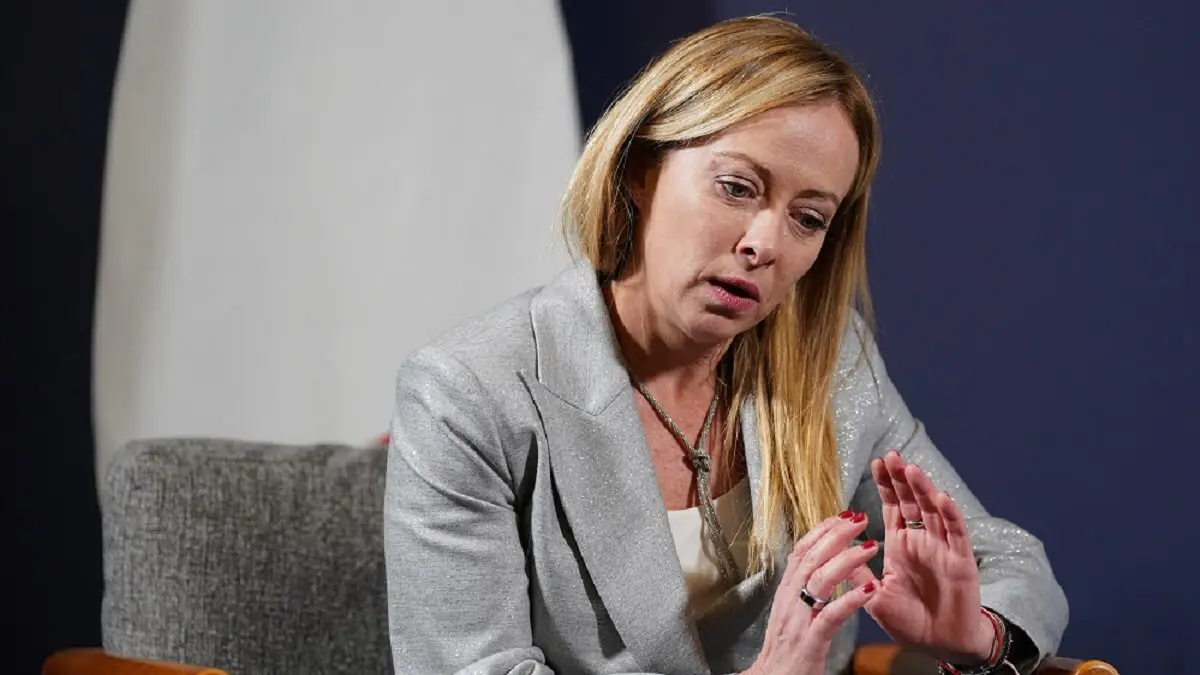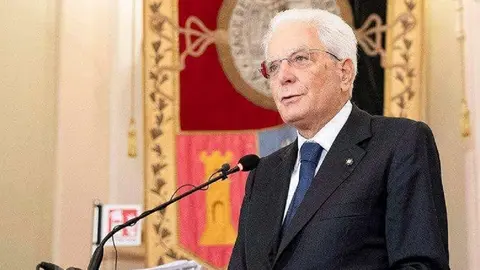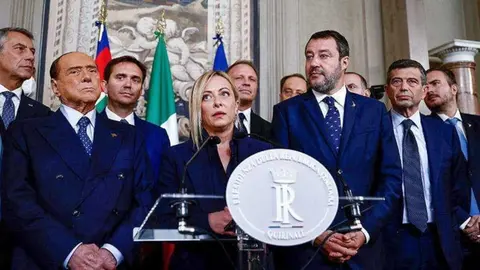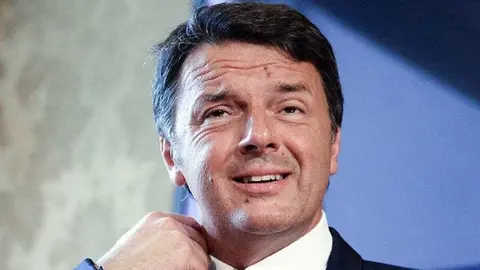The Meloni government faces its difficult months

As is well known, on 22 October last, the government headed by Romana Meloni completed its first year in office. And it did so after twelve months that were on the whole quite calm: growth dynamics inherited from the Draghi government; a large parliamentary majority after the overwhelming victory in the "political" elections of September 2022; and a lot of money still pending to be collected from the so-called "Recovery Fund", approved by the EU leaders in July 2020. In fact, the only serious problem the Meloni government has had to face in its first year has been migration: the almost 150,000 irregular migrants that have arrived on Italian shores during this year that is almost coming to an end are reminiscent of the figures that were handled at the time by the Renzi government (February 2014-December 2016) and the Gentiloni government (December 2016-May 2018), which generated such unease that such levels of anti-Europeanism have never been seen among the transalpine population in the absence of support from the other members of the European Union.
But with the reactivation of the Stability and Growth Pact (with its famous rules that each state must have a maximum debt-to-GDP ratio of 60% and an annual budget deficit of 3%), problems began to knock on the doors of the various ministries. The eurozone's third largest economy, although it managed to recover its "pre-coronavirus" Gross Domestic Product with Mario Draghi as "premier", has become more indebted than ever: although it reached a debt-to-GDP ratio of 152%, the current 144% is no less than 84 points higher than the Stability and Growth Pact's requirements.
A few months ago, the 27 member states of the European Union met to agree on how this same Stability and Growth Pact would be reactivated: there would be no return to the "dacronian" austerity of 2010-14, but neither would the debt of each member state be allowed to continue to grow (or even to remain as it was). Moreover, it was agreed that the most indebted countries (Greece, Italy, Portugal, Spain and France, in that order) would gradually reduce their debt-to-GDP ratios, because that was why they had been allowed to remain in the single currency, a currency as strong as the dollar or the pound sterling.
Thus, Meloni was left with only two possibilities: either to continue spending and go to war with the European Commission, as his current deputy prime minister Salvini did between 2018 and 2019, or to follow point by point what the EU authorities demanded. With one very important difference: while during Matteo Salvini's famous confrontation with Jean-Claude Juncker the country continued to receive the amounts of money that had been stipulated for years, now Meloni was facing the possibility of losing up to 120 billion from the Recovery Fund, as a result of the retaliation taken by the European Union for not complying with the required rules.
So the Eurosceptic Meloni went from a "stroke of a pen" to a converted Europeanist, making the Roman politician of previous years simply unrecognisable and giving the impression that she was not Gianfranco Fini's "political daughter" (when will they stop calling her an ultra-right-winger with an impeccable democratic record? ), but the granddaughter of Alcide de Gasperi himself, not only eight consecutive times President of the Council of Ministers, but also President of the European Coal and Steel Community (ECSC) between 1953 and 1954).
And, at the same time, his aforementioned deputy prime minister Matteo Salvini, with the key votes to have "maggioranza" the centre-right in Parliament, went from insulting Juncker (who has been retired from politics since 2019) to accepting everything demanded by his reviled EU.
And it is not in vain that the leader of the Lega and politician from Lombardy, after having been a councillor of the capital of Lombardy, MEP, senator, twice deputy prime minister and head of both the Interior and Infrastructure, knows that, when Meloni has no choice but to resign (which will probably happen in the second half of 2024), he has every chance of becoming the new 'premier', because at the moment, in the centre-right as a whole, there is no alternative to him in sight. Which, by the way, would be the worst "pill" for President Mattarella to swallow: the veteran Sicilian jurist and politician would have to put a politician without a university degree in charge of forming a government after 33 premiers, all of them with university degrees and, moreover, in one of the most cultured countries on the European continent. But that's the way it is, and Mattarella knows it.
The reality is that the transalpine economy has very poor growth figures: in the two best quarters of the year (the second and third), not only has it not grown, but it has gone into negative territory (the second quarter was -0.3% of GDP and now it is 0). Meloni, by just one tenth of a percentage point, has managed to avoid the dreaded "technical" recession (two consecutive negative quarters), but the dynamic is not exactly the best. And neighbouring Germany, with -0.1% in the third quarter, is even worse, but, of course, the Germans have a debt-to-GDP ratio of 67%, so they have much more room to spend and apply social policies in times of difficulty like the present.
Meloni is suffering the consequences of two circumstances: the first is the rise in the price of raw materials, which are very necessary for the industries of Emilia-Romagna and, above all, Lombardy and Veneto; and the second is the rise in interest rates, which have been at a simply colossal level. In the space of a year, interest rates have risen from 0-5-1% to almost 5%, and although ECB President Lagarde assures us that there will be no further hikes, her counterpart at the US Federal Reserve, Jerome Powell, has already made it known that there are still a few more interest rate hikes to come, all in order to keep up with the rising cost of living.
The latter is certainly what has hurt the Meloni government the most, since with such a large debt, a lot of money has to be allocated in the national budget just to pay interest on the debt. But we must not forget other expenses that have been very significantly detrimental: if in 2023 it had to spend 317 billion on pensions, now the amount will rise to 340 billion, which is a rise of almost 10%.
So it seems clear what is going to happen: between now and the end of December, a climate of relative calm is expected, with a risk premium that is currently under control (after almost reaching 210 basis points, it is now falling to around 190-192); but, from January onwards, with the new budgets in place, and the consequences that derive from this (freezing pensions if not lowering them, raising taxes, creating new taxes, etc. ), the same Meloni who once had more than 31% support among voters will see the number of people who continue to support her dwindle substantially.
And yet his two generation mates (Salvini, born in March 1973, and Renzi, who was born in January 1975) are at their lowest moments of popularity, making them no match for him at the moment. So much so that Salvini is quietly waiting for the government of which he is a member to fall sooner or later (he will not be affected by that fall because he heads the Ministry of Infrastructure, and it is enough for him to say that he has not received the money to do everything he planned to do), and Renzi is already thinking about the European elections in June 2004 in an attempt to become, surely, in the first Italian to hold the position of President of the European Council (although there are more possibilities, such as being vice-president of the Commission or heading a strong commissariat such as that of Economic Affairs or Competition, or even at the head of European diplomacy, given his increasingly international profile)
In reality, Meloni suffers, like so many others who were at the helm of the Council of Ministers before her, from the fact that public debt skyrocketed in the 1970s and 1980s. This means that there is less and less money to invest in new industries; to finance new infrastructures; and, in short, to modernise the productive apparatus of a country that is still a member of the G-7 (the seven most powerful economies in the world).
And yet, as has already been pointed out here on more than one occasion, it has a good bunch of competent ministers: Tajani in Foreign Affairs, Nordio in Justice, Crosetto in Defence and even Fitto in the management of European funds are good examples of this. But when it hurts the pocketbook, no government is spared, especially in a country that has had almost 70 executives in 77 years of republican history.
There is only one question left to ask: between November and December, the months in which the national parliament has to definitively approve the General State Budget (PGE), will Meloni dare to make changes to increase public spending, bypassing the debt and deficit rules? The impression is that this will not be the case, but let the passage of time confirm this.
Pablo Martín de Santa Olalla Saludes is a lecturer at Camilo José Cela University (UCJC) and author of the book "Italia, 2018-2023. De la esperanza a la desafección" (Madrid, Líber Factory, 2023).




